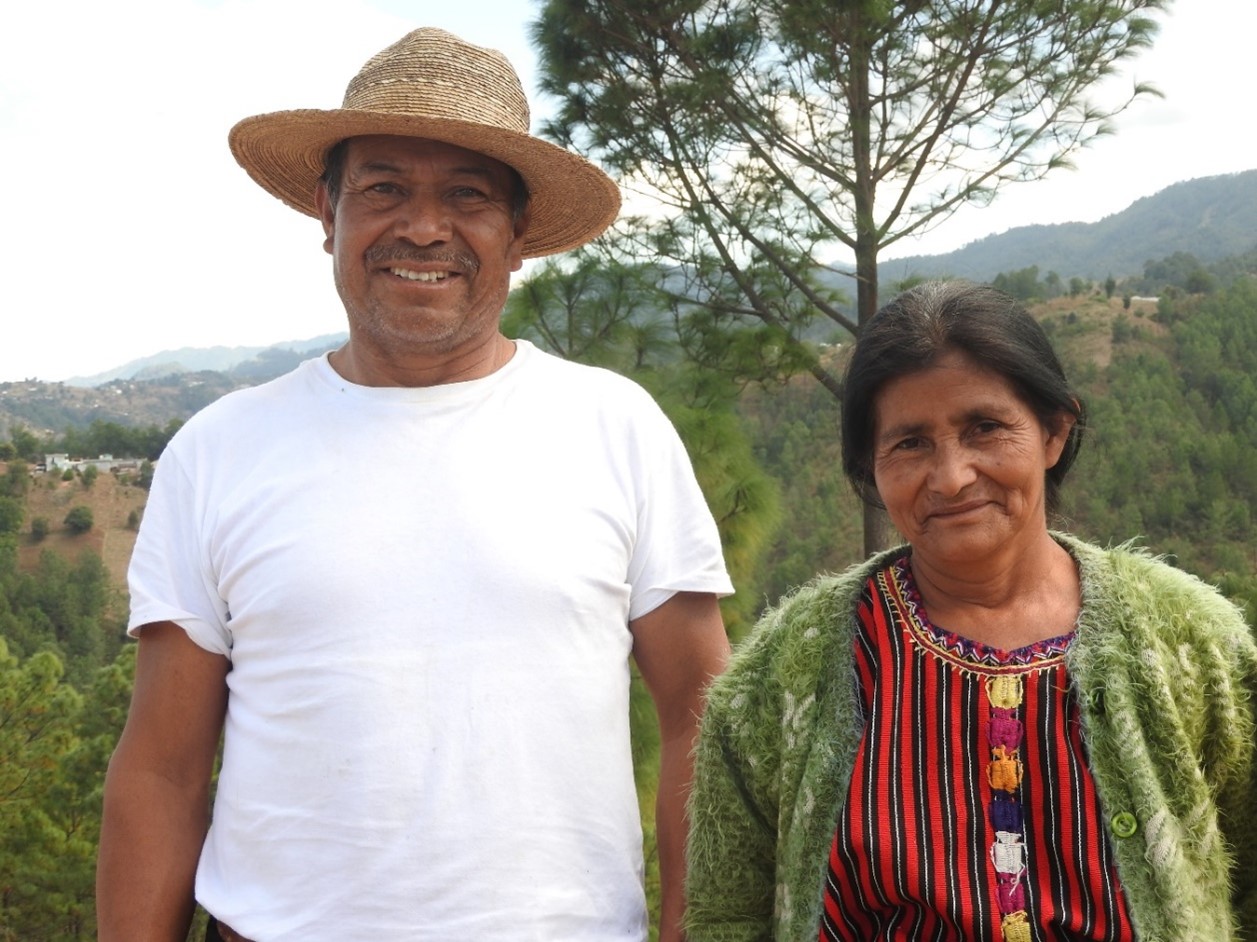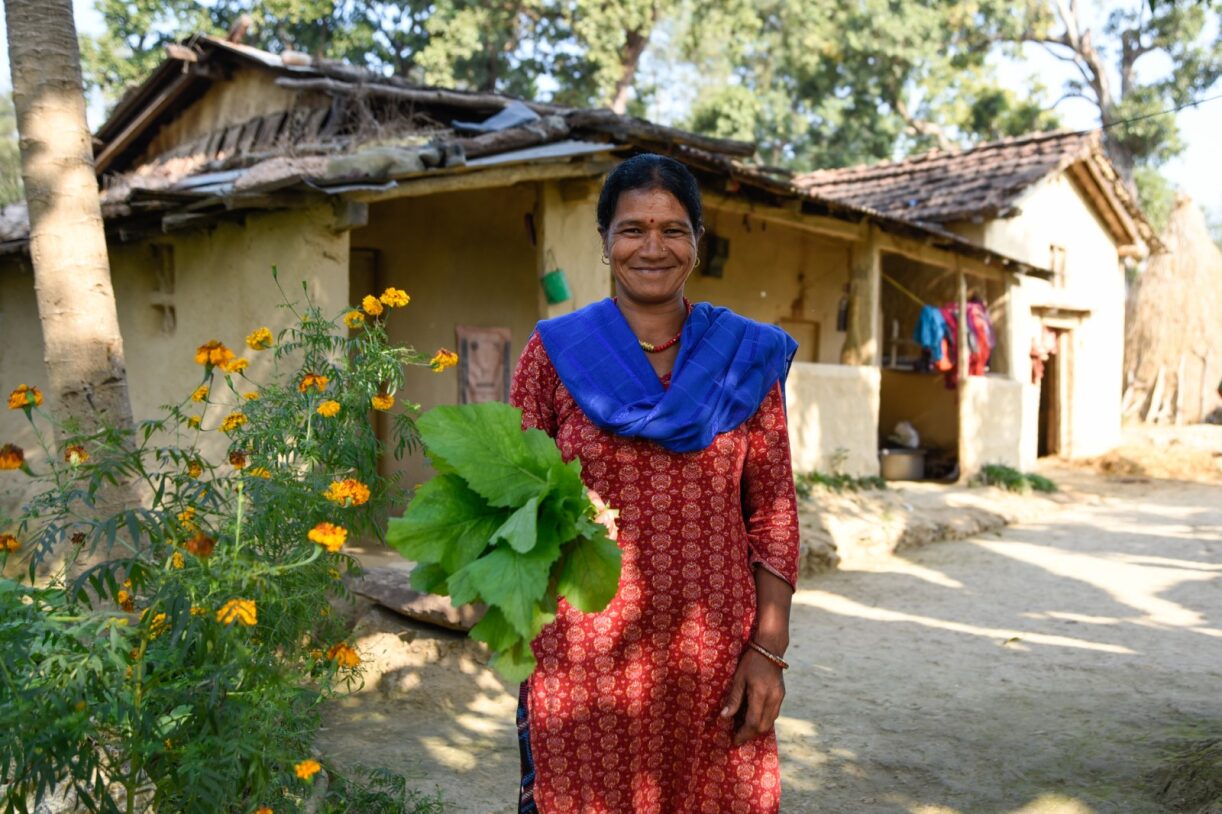Indigenous young Kichwa woman's high-level address at COP28 calls on world leaders to uphold Indigenous Peoples rights
At the UN Climate Change Conference (COP28) World Climate Action Summit Presidency event, hosted by H.E. Razan Al Mubarak, IUCN President and UN Climate Change High-Level Champion for COP28, the Indigenous Peoples address called for the respect of their land rights and full participation in climate negotiations.
María José Andrade Cerda is an Indigenous young woman from the Kichwa community of Serena, in Ecuador. She belongs to the Yuturi Warmi, the first Indigenous women guard in the province of Napo organized to defend their territory in the Ecuadorian Amazon. She is also part of the Runa Yachay, a community school led by Indigenous youth. She leads the economic and community development area in the council of the Confederation of Indigenous Nationalities of the Ecuadorian Amazon (CONFENIAE), an affiliate organization of the Coordinator of Indigenous Organizations of the Amazon Basin (COICA).
María José also directed the Youth Council of the Federation of Indigenous Organisations of Napo (FOIN), which seeks the integration of Indigenous youth in decision-making spaces. She works to promote the International Indigenous Youth Forum on Climate Change in order to achieve greater participation of Indigenous youth leaders in the UNFCCC. This indigenous youth platform is a legitimate space under the Indigenous Peoples' caucus on climate change and it allows for real participation with intergenerational and intercultural relevance.
At the UN Climate Change Conference (COP28) World Climate Action Summit Presidency event, hosted by H.E. Razan Al Mubarak, IUCN President and UN Climate Change High-Level Champion for COP28, María José delivered a high-level address from Indigenous Peoples to world leaders, sharing powerful stories and wisdom, emphasizing the vital role of Indigenous knowledge and practices in preserving biodiversity, and the role of women in the transmission of this knowledge. She called upon decision-makers to contribute “your grain of corn towards the sustainable use, management, and conservation of natural and cultural resources, to recognise our rights to our territories, guarantee full effective participation of Indigenous Peoples in negotiations, and respect Free, Prior and Informed Consent (FPIC).”
See her full statement:
Kawsankichu tukuykuna,
My name is Majo Andrade Cerda. I’m from the Kichwa de Serena Indigenous Peoples in Ecuador.
I bring the greetings of the Indigenous Peoples who live in the seven socio-cultural regions of the world. Today, my words express the feelings of my ancestors, of our peoples, of indigenous girls, boys, women, and men who continue to live in harmony with our Mother Earth and the universe.
Today, I am also the voice of my grandmother who taught me the wisdom of our culture and mother nature. She taught me that the troubled flight of the suyu pishkus means that torrential rains are approaching. These birds give us weather signals and we interpret them as early warning signs that allow us to adapt to climate change.
Our indigenous knowledge and practices are based on our world view, our system of buen vivir (good living) and on living in harmony with our mother nature. For thousands of years, our people have been devoted to living in balance and harmony with nature, observing the behaviour of the biodiversity that surrounds us, the animals, plant life cycles and water flows. In this way, we have learnt to give mother nature the time she needs to regenerate.
Just like my grandmother, all the wise women of the Indigenous Peoples have taken on the role of passing down this knowledge from generation to generation. Through these teachings our peoples have learnt the importance of observing and respecting mother nature, as it is only by doing so that we can build a relationship of reciprocity and mutual care. In our territorial co-existence this is a fundamental principle which is practiced collectively.
As Indigenous Peoples we call on COP28 and on each and every one of you to do your bit (or as we say contribute your grain of corn) towards the sustainable use and management, and conservation of natural and cultural resources.
To recognise and respect our rights and our territories.
To guarantee the full and effective participation of Indigenous Peoples in these negotiations, and direct access to adequate financial resources to be part of the implementation of the outcomes.
To respect our right to free, prior, and informed consent so that the agreements made at this COP are consistent with the United Nations Declaration on the Rights of Indigenous Peoples.
On the issue of loss and damage we must accept that if we keep damaging mother nature, we are the ones who will lose. That is why, Indigenous Peoples must be represented on the Board of the loss and damage fund, to guarantee direct access to these funds.
We the Indigenous Peoples call on you to place nature, people, lives, and livelihoods at the centre of climate action during the negotiations you will lead at this COP28. There is no more time to waste on words. It is time for action, and I urge you to come together, to act collectively, and deliver results that are truly for the good and well-being of Mother Earth and all of humanity.
As the sacred Mayan book, the Popol Vuh, teaches us ‘Let everyone stand up and advance. Let no one be left behind. Let there be not one or two of us, but all of us moving forward together’ .
Pakarachu, yupaychani.



